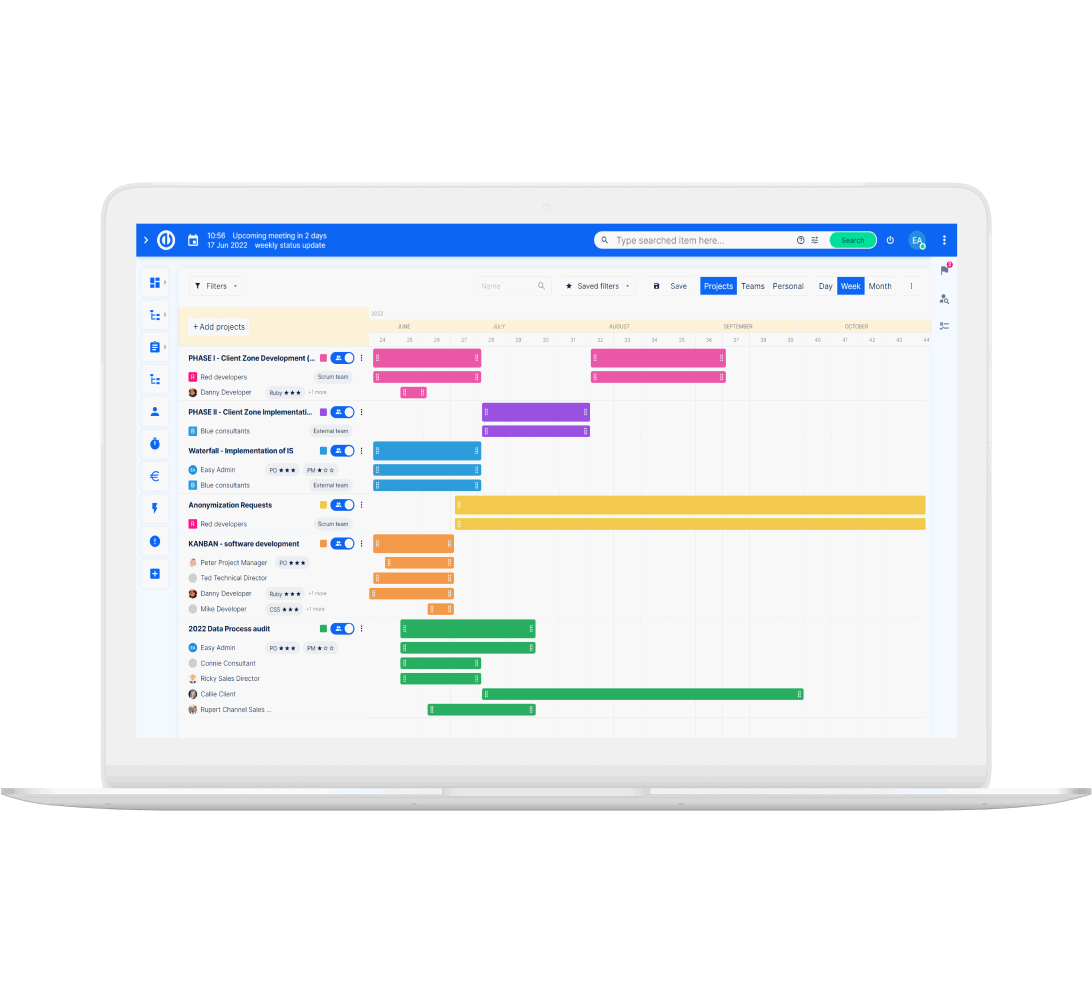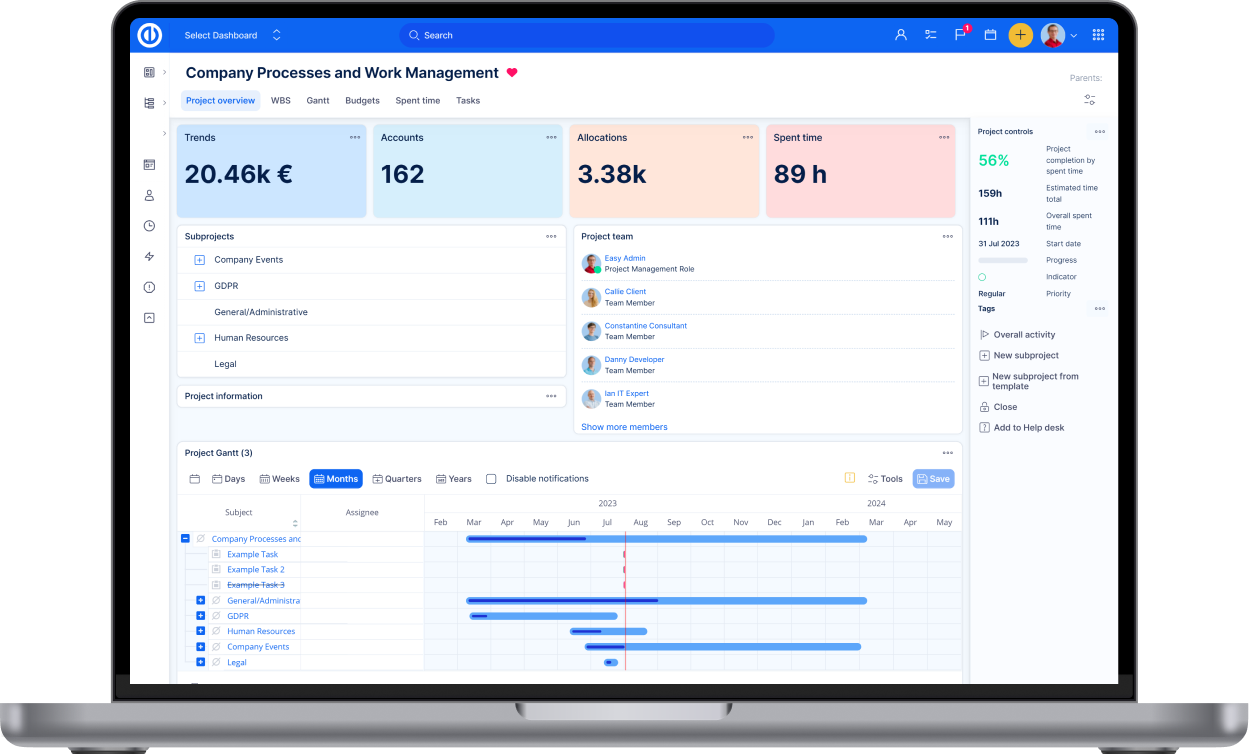Why Choose an On-Premise Solution for Your Project Management Software?
The choice of cloud hosting vs. server hosting has become an eternal topic of discussion. Even more so now – since Jira announced the end of life of Jira server.

- Starting with the end of server sale in February 2021,
- Followed by end of support in 2024.
Let's see what you can do about it.
A Question You Will Face
Sooner or later, this question will arise in your company too: “Should we migrate from Jira Server to Jira Cloud (as promoted by Atlassian), or should we migrate to a server solution of another PM software?“
Despite the external cloud hosting services gaining more and more popularity, on-premise solutions still have some unbeatable advantages. In the end, the right decision depends on the nature of your business and the information your company handles.
Quick Recap of Differences (and Budget)
First of all, let’s clarify the difference between the Server (on-premise) solution and the Cloud solution.
- The Server solution is designed for your own server = you host the software. By purchasing this solution you obtain installable software + the source code. Compared to Cloud, the minimum subscription period is usually a year.
- The Cloud solution is hosted on servers of the provider in various locations. By purchasing this solution, you gain the right to use the software in the cloud for the period of time you choose. Cloud also offers more variety of pricing plans, so you can even pay monthly.

Looking for the best alternative to Jira Server? Easy.
Get all powerful tools for perfect project planning, management, and control in one software.
Top Three On-premise PM Solution Advantages
1. Control
Have physical control over your server. Having an In-house server usually means that you will have a server rack or even a server room/closet that your dedicated IT team takes care of, and provides the maintenance for. So, if you have space and human resources, why not opt-in for the server solution?
2. Data safety
Keep sensitive and critical data in-house on the server. No third party will have the access to the company’s data. However, this does not exactly mean Cloud providers would be accessing and misusing your data, many companies have certain data protection guidelines and policies. Sometimes even the Private Cloud does not meet those guidelines, and in this case, the Server Solution is the best choice, as it gives you total control over your data.
3. Zero internet dependency
You do not have to rely on an Internet connection to access your data. Unlike with Cloud, the user experience is not limited by the speed of the internet connection. Imagine the Internet connection goes down on either your or your provider’s site – then you have no access to any of the data. You don’t have to go through the process of considering and investigating data and access security of the Cloud solution, especially the operational policies. With Cloud, you might have to access data using Virtual Private Network (VPN) technologies, unless you opt-in for a Private Cloud – which is not offered by all companies though.
In Conclusion
When choosing between a Cloud solution and a Server solution make sure you know all the requirements your company has, especially in regards to the internal data handling guidelines.
Are you a Jira Server user and you want to stick to an on-premise solution, but not sure which project management software to switch to? Request a free analysis of migration from Jira Server to Easy Project server to help you in your decision-making process.
